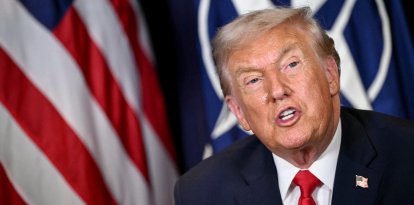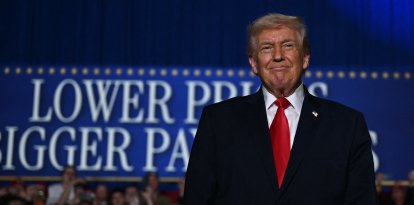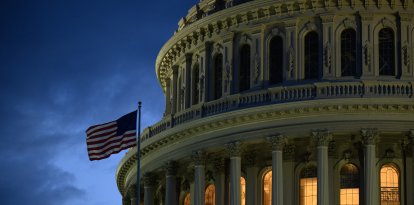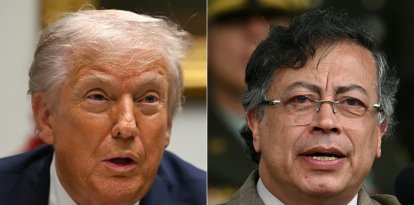What is the government shutdown and what are the consequences?
If Congress does not reach an agreement by October 1, history will repeat itself for the 15th time.

Wikimedia Commons
Washington, DC has yet to agree on funding the federal government and they are working against the clock to avoid a government shutdown, which will begin at midnight on October 1, unless Congress can approve a Continuing Resolution (CR) to provisionally extend the situation.
Kevin McCarthy (R-CA) failed to convince his party to pass the Republican leadership's proposal in the House of Representatives. Now he is refusing to debate the emergency solution approved by the Senate in a bipartisan vote.
Congress is currently divided over several points such as how much aid should be given to Ukraine, whether more funds should be allocated to the southern border, provisional spending cuts (less money for federal agencies) and the deadline extension.
The House Speaker's latest attempt was thwarted on Friday when 21 Republicans joined all Democrats in rejecting the most recent version of the proposed CR.
Andy Biggs (R-AZ), Dan Bishop (R-NC), Lauren Boebert (R-CO), Ken Buck (R-CO), Tim Burchett (R-TN), Eric Burlison (R-MT), Michael Cloud (R-TX), Eli Crane (R-AZ), Matt Gaetz (R-FL), Paul Gosar (R-AZ), Marjorie Taylor Greene (R-GA), Wesley Hunt (R-TX), Nancy Mace ( R-SC), Mary Miller (R-IL), Cory Mills (R-FL), Alex Mooney (R-WV), Barry Moore (R-AL), Troy Nehls (R-TX), Andy Ogles (R- TN), Matt Rosendale (R-MT) and Keith Self (R-TX) were all Republicans who voted against it along with the 211 House Democrats.
This was one of the leadership's last chances to avoid a government shutdown, so, unless there is a last-minute miracle, history will repeat itself for the fifteenth time.
The history of the government shutdown in the United States
The United States decides how to spend public money each year when Congress approves what is called the Appropriations Bill. The legislators have until October 1 to come to an agreement. If they don't reach an agreement by then, the federal government will close.
The logic comes from the National Constitution, specifically from Article 1, Section 9: “No Money shall be drawn from the Treasury but in Consequence of Appropriations made by Law, and a regular Statement and Account of the Receipts and expenditures of all public Money shall be published from time to time.”
Once the government shuts down, certain agencies stop working immediately. Sometimes it affects more agencies than others. During this time, employees cannot work and their pay is withheld until Capitol Hill reaches an agreement.
The United States was completely unaware of this scenario until well into the 20th century when the first government shutdown took place in 1980. Jimmy Carter was the first president to experience a shutdown, which lasted a little more than 24 hours. There were two shutdowns in 1982 and others in 1983, 1984 (twice), 1986, 1987, 1990, 1995 (twice), 2013, 2018 and 2019.
Counting 1980, on the first five occasions, Democrats controlled the House of Representatives, which is usually in charge of promoting the Appropriations Act. Ronald Reagan was the president who experienced the most government shutdowns, eight between 1981 and 1989.
The last one, coincidentally the longest, was in 2019 and lasted 35 days. An estimated 800,000 public employees lost out on wages during that time.
One of the most unforgettable moments of that shutdown was when then-president Donald Trump welcomed the Clemson University football team to the White House. They had recently won the National College Football Championship. Since employees were unable to work, including the kitchen staff, the president took out his wallet and bought food from McDonald's, Wendy's, and Burger King. Trump said, "If it's American, I like it. Everything is American. No matter what we did, there's nothing you can have that's better than that, right?"

























